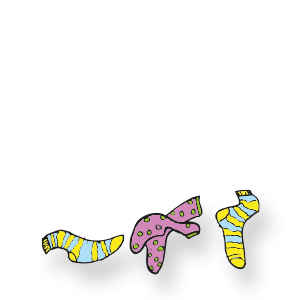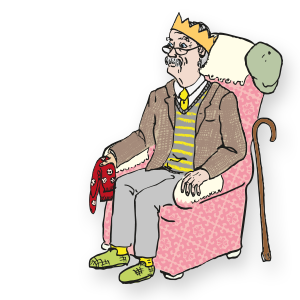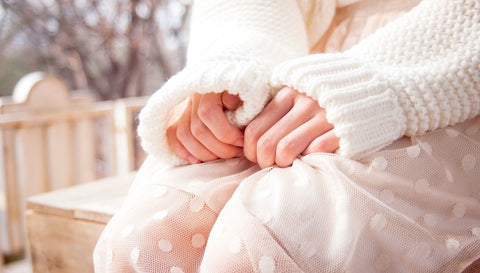

6 simple questions for regulating heightened emotion.

We are all familiar with the human stress response, fight, flight or freeze, but what might the 'freeze' response look like?
Worrier to Warrior in Times of Turmoil
Spring/Summer 2020 has seen a lot of turmoil & challenge in place of the usual fashion focus sending the masses to flock to the high-street for the latest ‘must-have’ items. Personally, I have been delighted to see pyjama and active wear chic having a stint in the spotlight not to mention advice on how to rock the smart, yet super casual “Zoom life” looks that pair trusty tracksuit pants with tailored tops to rock any home office. That said, when toilet roll became the hot commodity and hand sanitiser had a per litre price comparable to the latest Jo Malone fragrance, things really started to feel surreal with a movie-esque quality… The philosopher Alan Watts said that “we live in a time of unusual insecurity” and this particular period in history will be one that clearly demonstrates this but what exactly does it mean for us?
The health crisis is an event that has really shaken our sense of security, eroding the solid foundations that we have become accustomed to in day-to-day life. It has tasked us to define ‘new normal’ for ourselves. This can be exciting for some and the stressor of all stresses for others. As adults, the emotional turbulence of this experience has been significant be it positive or negative (I know that I have had a wild ride on this particular rollercoaster). For children in particular, many have found their whole world has had a complete makeover without their consent; in some cases robbing them of the closure they would normally get during big transitions such as moving from a primary curriculum to secondary, or indeed an examination period that potentially could dictate the trajectory of their journey into adulthood. Parenting has never been harder – it feels like there is a greater expectation now compared to our own parents’ generation. There is so much information & guidance available these days that decision fatigue is not only a very real thing, it is prevalent and often can nudge us into the lesser spoken about survival response – the freeze response. This can be where you find yourself when the situation you are facing is beyond your coping abilities, overwhelming you. It introduces a paralysis of sorts where you simply don’t know what to do… This is the response I found myself experiencing during the health crisis, though it wasn’t immediately identifiable to me. It can be quite subtle, relative to its fight or flight action-oriented counterparts and is often cloaked by the symptoms of regular anxiety (a natural enough consequence of any unexpected stressor).
Initially, the break from hours spent commuting, reprieve in pressure from the daily grind, pause in school runs & extra-curricular chauffeur duties etc. were well received as collectively, we took a deep breath and waited, together in the unknown, to see how things would map out. Then, as it became apparent that the landscape as we knew it was shifting (and shifting rapidly at that) the uncertainty and fear started to grow along with the 24 hour news coverage perpetuating the message that it was not safe to leave your home and if you did, you were at risk of endangering yourself AND perhaps then posing a danger to others. As adults this left us in uncertain terrain, with heightened emotions, worry & fear. Worry & fear are every bit as infectious as any virus. Adults are supposed to know what to do and how to respond, right? It is only to be expected that the children & young people in our immediate environment, who look to their trusted adults to be the calm in their chaos, pick up on the dysregulation of the grown-up who generally means safety to them. This is the very reason why the old adage of putting your own oxygen mask on first holds – to care for anyone properly, it is essential first to manage your own needs and return to an unreactive, centred place, un-hijacked by elevated emotion. The freeze response in this scenario kicked in for me as the calculations of my subconscious mind concluded that it was not possible to defeat the threat I was faced with nor could I flee from it. It was just bigger than anything I had navigated before. I had no reference for it in my mental library. The freeze response is ultimately about the inability to take action towards overcoming a stressor. The mechanism for survival becomes blocking out the enormity of the experience with the aim to preserve a semblance of wellbeing. A fundamental principle of Ollie Coaching is that all behaviour serves a purpose and generally, there is no greater purpose than safety be it personal or that of those you love.
Emotions are intangible things and tricky enough to map for adults, let alone children. Without informed support work or education concentrating on growing awareness around the ‘how’ of feeling our feelings, how can it be possible for us to truly understand our reactiveness? How can we regulate our reactiveness so that we can respond to the needs of those who depend on us? No one benefits when hijacked by powerful emotion. An emotion is not who we are but simply a part of us that is acting in response to an environmental stimulus. It is the language of the body. As humans, we have both inner and outer intelligence. Our inner intelligence is our awareness, our ability to feel intuitively and this helps us know, understand and motivate ourselves. Outer intelligence helps us assess, evaluate, sense, understand & manage how we relate to & interact with others. These intelligences combine to give us a system of emotional intelligence which is a very real superpower. When we grow the ability to process emotion and get comfortable with feeling what we feel, when we feel it, we empower ourselves to feel things safely. This is where the support from a Coach comes in handy. As an inspiring Mentor of mine says, no one can do this work for you but you cannot do it alone. We are our own harshest critics and key to improving our experiences in the world is learning to treat ourselves with compassion in place of criticism. It is learning to soothe & regulate our own inner child. This is why the work in the area of emotional resilience using the Ollie and his Superpowers model is so effective across all age groups and occupations. We were all children once and our levels of emotional maturity are unfortunately, not proportional to our numerical age.
The tools learned in my coaching studies, allowed me to approach my emotional waves with interest & curiosity rather than default to avoidance or reacting from fear. Every emotion is valid and it is 100% ok to feel what you feel. Understanding my own reactions also allowed me to expand my awareness to accept that the behaviour of others may be prompted from a fear-based response making way for a sense of compassion rather than condemnation. Developing deeper awareness and self-coaching in times of high stress has softened the voice of my inner-critic and allowed me to go from worrier to warrior in this time of turmoil. No parent is perfect. Doing your best with the circumstances you have is always good enough. Life gives us so many learning moments and parenting provides beautiful opportunities to teach what we were never taught. Owning our feelings and normalizing speaking about them makes it safe for others to do so too, especially younger generations. Trying to be the ‘perfect’ adult distracts us from being the real people our children, friends & family need us to be – people who can own our struggles, make mistakes and fail forwards. This is the path of the emotional warrior. There is strength in feeling, there is wisdom in feeling. It is possible to ride the emotional wave rather than be wiped out by it once you take time to listen to the language of the body. The trigger of any stress may be outside of our control but only we can choose how we A) interpret it and B) respond to it. Get curious instead of self-critical.
Along with reminding myself that ‘In this moment I am safe’, six simple journal questions that I find useful to support self-enquiry in regulating elevated emotion & returning focus to the present moment are:
- What am I really feeling?
- Where do I feel it in my body?
- What is one action I can take now to feel better?
- What would I prefer to feel?
- What immediate need can look I after to move towards this feeling?
- What one stressor can I remove to improve how I feel?
What’s important to remember here is that it’s not possible to do the work for others; you can only work on developing yourself and hope that others follow your example. We have been taught to believe that being ‘tough’ brings respect. When you really think about respect, it is a quality that cannot be gained through force but only through understanding. There is no greater power than in understanding yourself. What a beautiful gift to cultivate in the next generation. As James Baldwin said “children have never been very good at listening to their elders, but they have never failed to imitate them.” When we grow our awareness and change our own behaviour first, we start laying down the blueprint from which the next generation will take their lead. This is the work of the modern day warrior.
Sonia Quinn Casey, Ollie Coach
Sonia is an Ollie Coach & Mum from the Republic of Ireland. She is a Medicinal Chemist with 15 years’ experience in pharmaceutical multi-national companies and a facilitator of corporate workshops focusing on topics like Work/Life Wellbeing, Stress & Energy management and Resilience in the Workplace. Sonia is passionate about awareness, self-discovery and community as the foundation of personal growth and empowerment. She has a keen interest in Neuro-science and the mind-body connection.
To get in contact with Sonia, email sonia.casey@ollieandhissuperpowers.com

